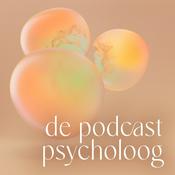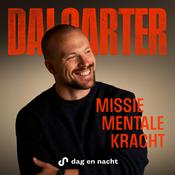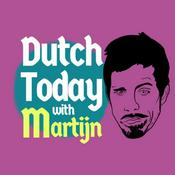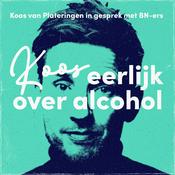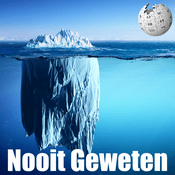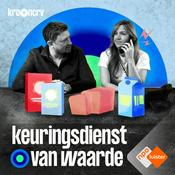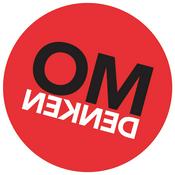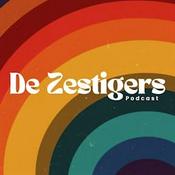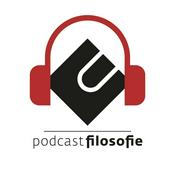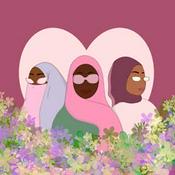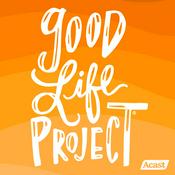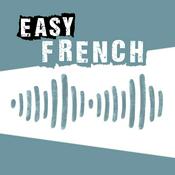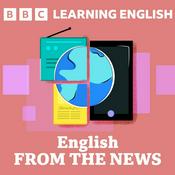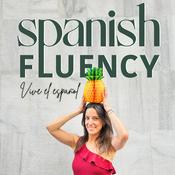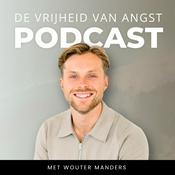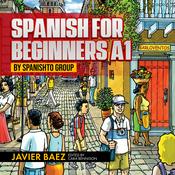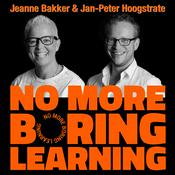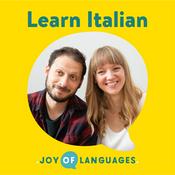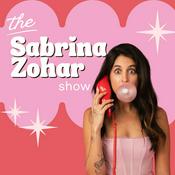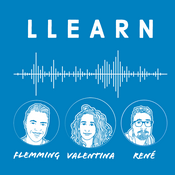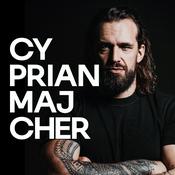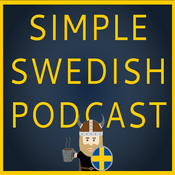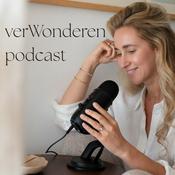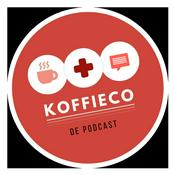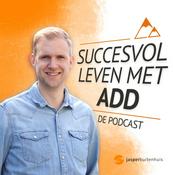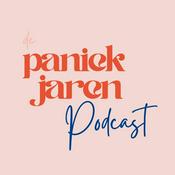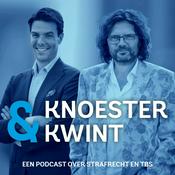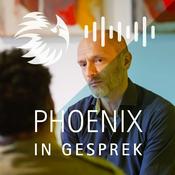34 afleveringen
- Transcript
In this final - and therefore extra-long - episode, three parents who have previously been guests on the podcast talk about how their family's bilingual journey has progressed since then. I look back over the past four years, reflect on the future and, to conclude, we hear a poem written about and dedicated to bilingual children, and inspired by the podcast.
Our first guest is Liz. I first spoke to her in the first season of Kletsheads (in episode 4, about language mixing). Liz is originally from Limburg in the Netherlands but has lived in Canada for 10 years. Together with her Egyptian husband, she has a 4-year-old son, Otis.
Next, we hear from Marjolein. Marjolein grew up monolingually in the Netherlands, studied English and then became an English teacher. When she became a mother in 2018, she decided to also speak English to her infant son Owen. She now has a second son, James. Marjolein was first featured in this episode 2 of the first season on how much input does a child need to hear to become bilingual.
Finally, I speak to Christi. Christi was first on the podcast back in 2020 (in the same episode as Liz) as our Kletshead of the week. She spoke about her own upbringing as a trilingual child in Vienna, and about the choices she faced now that she had become her mother herself. In this episode she tells us how speaking German can sometimes be a challenge (especially when 'life' gets in the way) and how her eldest daughter has picked up Spanish from her mum. If you want to know how these three parents and their bilingual families are doing now, listen to the podcast!
To conclude this episode and thus the entire podcast series, we hear a poem, Three words for squirrel. This poem was written and is performed by spoken word poet, Wieke Vink. You might recognise Wieke from the first episode of this final season, when she interviewed our Kletshead of the week. If you listen carefully to the poem, you will hear many references to conversations, topics and words that have passed by in the past four in the podcast.
Three words for squirrel
This poem is for the little onesWhose mother tongueIs more than one With words in different flavoursOn the tip of your tongueOr flowing out of your fingertips This is for the childrenFor whom the crossroads of thoughts in your headCould be spread outInto at least two different languages With womb-held babiesBathing in soundFollowing the rhythmic patternsThat are with them – all around EmergingOut into the worldA holder of knowledge Growing up You already knowHow to be gentle with yourself and with othersHow to wobble on the table of conventions How to take it slowWhen a word doesn’t immediately come to mind When in search for the right ‘mmm’The nuance that you might knowFrom the flow of past conversations Not yet fully interpretatedBut held onto brightlyIn the library of your mind Your shelves full of boxesWith vocab and grammarTu sais que somewhereBetween the Malayalam, French and Finnishthere will be a great find This is for youAs you’ve feltHow language is part of connectionFor all our neurodiverse minds Language as a connectorFor all things funny and wise, silly and kind Dear multilingual child You might not be able to speak it allYou might not be able to read it allYet you are able to hold it all In a map of the worldThat’s unique to youAnd the communities that you belong to Your cultures sometimes resonatingIn the tones of your skinThe rhythms of your sentencesThe sounds of your name You know, language is part of identityYet our schools may beSo monolingual or full of variety With the need for heritage language educationAnd intercultural communicationWithin and across our different nations With all these languages holding the world in their embraceAnd a dialect in every corner And when seasons seem out of orderYou are asked to braze both our physical and our cultural landscapes As three seasons of a podcast droppedFrom the northern hemisphereCoveri... - Transcript
Learning to read does not come easily to all children. Some children experience serious problems with reading and spelling. They have difficulty recognising and learning letters, they mix up sounds or letters, or read very slowly. With proper help, this often passes, but in some children these issues remain. Persistent problems with reading and spelling are sometimes due to dyslexia. What exactly is dyslexia? If a bilingual child has dyslexia, will they succeed in learning to read in both languages? Does dyslexia work the same in all languages, e.g. also in languages with different scripts? What can you do as a parent, teacher or speech language therapist to support bilingual children with dyslexia?
Researcher Ioulia Kovelman explains that being dyslexic means that you have long-term problems with reading. More often than not, these become clear when - after several years of schooling - children have persistent difficulties in connecting sounds and letters or sounds and characters but even before children start to read, there may be some signs that children will develop dyslexia, for example if they struggle to recognise which words rhyme with each other. We also learned that dyslexia works similarly across languages and so if your bilingual child has dyslexia in one language, they will have it in another. The tests used to diagnose dyslexia may however differ depending on whether sounds are matched to letters, as an in alphabetic languages such as English or Arabic, or to characters as in Chinese. One thing that Ioulia made very clear is that being bilingual does not make dyslexia any worse.
In Let's Klets, we spoke to Miriam de Oliveira from the International School Breda in the Netherlands. She told us about the Language Friendly School network. If you understand Dutch, you can hear me talk to the co-founder of this network, Ellen-Rose Kambel, in this episode of the (Dutch edition of the) podcast (Season 2, Episode 6).
Ioulia Kovelman is Professor of Psychology at the University of Michigan in the US. She a neuroscientist studying the bilingual brain and how children learn to speak and to read in more than one language. You can read more about her research at the Language & Literacy Lab here. The benefits of heritage language education (complementary schools) [Season 3, Episode 6]
15-9-2023 | 1 u. 1 Min.Transcript
Many bilingual children around the world attend heritage language education. Sometimes called complementary or supplementary schools, heritage language programs or mother tongue education, these schools offer children and young people a safe space where they can develop and maintain their HL and cultural identity. Classes take place at the weekend or after children are done for the day with their mainstream schooling, and in many cases include not only language but also a cultural and sometimes a religious component.
In this episode we hear more about the research on heritage language education. Do certain types of complementary schools work better than others? What effect does attending these schools have on children's language development and their cultural identity? What other benefits are there, and are there benefits for parents as well as children?
Researcher Layal Husein tells us how complementary schools have indeed been found to support bilingual children's heritage language development, especially when it comes to literacy. They also serve as safe spaces for children to explore their cultural heritage and identity. Complementary schools can also serve as community hubs for parents, and for newcomers, help them navigate their new surroundings.
In this episode we heard excerpts from two previous episodes of Kletsheads: this interview with Gisi Cannizzarro (starts at 22m17), director of the Heritage Language Education Network, and this interview with Thorwen, who attended complementary school in Dutch whilst living in Hong Kong as a child. Another useful resource for anyone interested in this topic is the National Resource Centre for Supplementary Education in the UK. You can read more about mother tongue education being a human right here.
Dr. Layal Husein is a researcher the University of East London, UK. She recently completed her PhD on the effects of complementary schools bilingual children's language and identity. You can read more about this work here (if you have access - unfortunately, like many academic articles, this paper is behind a paywall). Layal grew up bilingually, learning Arabic from her Bahraini father and English from her mother and at school.
Our Kletshead of the week is the Sybil Vachaudez. She grew up in Denmark and Portugal, learning (and then forgetting) Danish alongside Portuguese, French and English. Curious about the Portuguese music you heard during our conversation? That was Portugal's 2022 entry for the Eurovision Song Contest, Saudade, Saudade by Maro.
In this episode, I also share our final Quick and Easy, a concrete tip you can put into practice straightaway to make the most out of the bilingualism in your family, class or practice: create a reading problem that your child will want to solve. Listen to the podcast to find out more!- Transcript
According to WHO, 1 in 100 children have autism. Whilst exact numbers can vary depending on who's reporting them, where in the world you live, and how autism is defined, this developmental disability is certainly not uncommon. In fact, in many places, the number of people living with autism is increasing. Autism is a spectrum which means that it's different for everybody. It affects how people relate to others, how they make sense of the world around them, and how they communicate. And it's likely these problems with communication that raise questions about bilingualism in autistic children. Should you raise an autistic child with more than one language? Can autistic children who don't speak very much or at all become bilingual? What effect does being autistic have on a child's language development and is this any different for bilingual children? Researcher Philippe Prévost tells us about this emerging field of research. He tells us that whilst there's a lot that we still don't know about autistic children growing up bilingually, there's no reason to believe that autistic children cannot be raised with more than one language.
Philippe Prévost is Professor of Linguistics at University of Tours in France, and one of the few researchers working on the topic of bilingualism and autism. His research focuses on how different groups of bilingual children learn how to put sentences together, including children with Autism Spectrum Disorder and / or Developmental Language Disorder. To find out more about Developmental Language Disorder, listen to the previous episode of Kletsheads on 'How do you know if a bilingual child has a language delay?'. To find out more about bilingualism and autism, including hearing an autistic bilingual adult's lived experience, listen to this episode of the podcast Much Language, Such Talk.
Our Kletshead of the week is the 30-year-old Gema Garcia from New York. Gema grew up in an Ecuadorian family learning Spanish and English, and she tells us how she uses both languages professionally as an aspiring translator. During our conversation, Gema talked about an essay she wrote, first in Spanish and then translated into English, about her coming out experience. Curious to take a look? You can access the essay here (p. 82 in Spanish and p. 86 in English). Find Gema on insta @fernanda.ecu.
This episode's Quick & Easy is to have that conversation you've been meaning to have with your partner, parents or friends, colleague or child and to talk to them about that one topic that's been bothering you for ages and make sure you can move forward together. - Transcript
In this episode we review two books about bilingual parenting: Bilingual success stories around the world by Adam Beck and Bilingual families. A practical language planning guide by Eowyn Crisfield.
We get the parental perspective from Maria Papantoniou, a Greek-speaking mother raising her child bilingually in the UK together with her Greek-speaking husband, and Sam Timmermans, a Dutch-speaking father who until recently lived in the UK with his wife and two children.
Language scientist Ludovica Serratrice joins me to evaluate the books from a research perspective. Ludovica is Professor of Bi-Multilingualism at the University of Reading in the UK, where she is also Director of the Centre for Literacy and Multilingualism and where she teaches on the BSc in Speech and Language Therapy. Read more about her research on the language development and processing of bilingual children and adults here.
In Let's Klets we speak to Daphne Vlachojannis, mother to three multilingual children, currently living in Greece. She tells us how she went about writing (and re-writing) her family language plan as her family expanded and moved countries. You can read more about Daphne and the work she is doing as a consultant at Raising Bilingual Children here.
During this episode I referred to an earlier episode of the podcast with Eowyn. That was our very first episode How to plan for a bilingual child. I also mentioned the Planting Languages project. Their website shares materials in several languages which can be used by parents and professionals to think about which resources are available, the family goals, and many other factors which come into play when writing a family language plan.
Meer Onderwijs podcasts
Trending Onderwijs -podcasts
Over Kletsheads [English edition]
The podcast about bilingual children
Podcast websiteLuister naar Kletsheads [English edition], De Podcast Psycholoog en vele andere podcasts van over de hele wereld met de radio.net-app
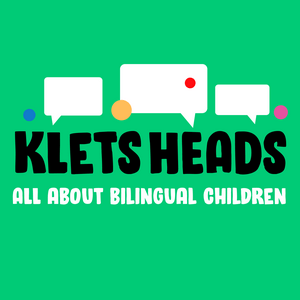
Ontvang de gratis radio.net app
- Zenders en podcasts om te bookmarken
- Streamen via Wi-Fi of Bluetooth
- Ondersteunt Carplay & Android Auto
- Veel andere app-functies
Ontvang de gratis radio.net app
- Zenders en podcasts om te bookmarken
- Streamen via Wi-Fi of Bluetooth
- Ondersteunt Carplay & Android Auto
- Veel andere app-functies


Kletsheads [English edition]
Scan de code,
download de app,
luisteren.
download de app,
luisteren.
![Kletsheads [English edition]](https://podcast-images-prod.radio-assets.com/100/kletsheads-english-edition.png?version=a4a97cd512a2057fef5d94b6affe12ff76484fd1)
